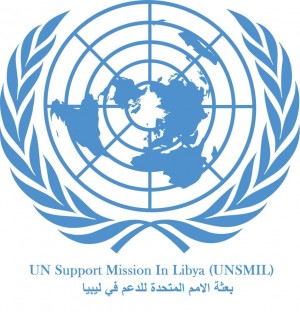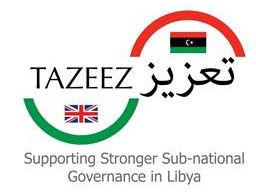By Sami Zaptia.
London, 27 July 2020:
UNSMIL reported today that the independent international audit of both Central Banks of Libya (CBL) has been finalized and will be going ahead.
The news is vital for Libya on the economic and political level. Libya’s oil production and exports have been blockaded by Khalifa Hafter / his allies since January this year.
Ostensibly, the blockade is because Hafter and his allies feel Libya’s oil wealth is not being distributed equally between western and eastern Libya. They also claim that Libya’s oil revenues are being corruptly squandered and being used to support western based militias, Islamists, and terrorists.
Both the Tripoli and eastern-based CBLs accuse each other of misuse of funds. The Tripoli CBL accuses the eastern CBL of offering ‘‘illegal’’ loans to the eastern-based and internationally unrecognized Libyan government to keep it afloat. To this end, they have both agreed that an independent international audit is a prerequisite for the unification of the two CBL’s.
The two CBL’s split after the 2014 Libya Dawn Tripoli militia coup forced the then only legitimate government to flee to eastern Libya with the newly elected parliament, the House of Representatives.
The announcement that the CBL independent international audit is going ahead will now put pressure on stakeholders and may expose their real intentions and motives.
It will put pressure on both CBLs to reunite. There are those who believe that the issue of the independent audit has been, but a fig leaf used by both CBLs to avoid reunification and that they are both happy with the status quo.
The announcement will now also put Hafter and his allies under pressure to now allow oil production and exports to resume.
Hopefully, the announcement may also take the sting out of talk of war, and shift the narrative from one of an imminent attack and war by the Tripoli forces beyond the so-called ‘‘red line’’ of Sirte-Jufra.
There are many observers who believe that Libya’s war is nothing more than a battle for a (corrupt?) share of its oil revenues. If opposing stakeholders start to perceive that oil revenues will be more transparently accounted for and distributed – maybe the motivation for continued fighting will be removed.
But this is based on the presumption that the pretexts for fighting by the warring parties so far, are their real pretexts and motivations for war. Hafter’s critics, for example, believe that he is only interested in gaining power for himself and reinstating a military regime in Libya. They believe talk of western militias, Tripoli CBL corruption, Islamists and terrorists is but a veil for his true designs to gain power.
The independent CBL audit will at least remove one pretext by the east for fighting against western Libya. But, on the other hand, will Tripoli, now empowered and emboldened by its recent military successes and by support from its military ally Turkey, stand down, accept a ceasefire at the current red line and move to political negotiations?
Here is today’s full statement by UNSMIL on the matter:
‘‘Acting Special Representative of the Secretary-General and Head of the United Nations Support Mission in Libya (UNSMIL) Stephanie Williams is pleased to announce the finalization of the process to initiate an international audit of the two branches of the Central Bank of Libya. This is the culmination of a process laudably commenced by GNA Prime Minister Sarraj on July 10, 2018 in a letter to UN Secretary General Antonio Guterres in which he requested the United Nations to facilitate an international audit of the Central Bank branches in Tripoli and Beyda as a means to restore integrity, transparency and confidence in the Libyan financial system and create the conditions for the unification of Libyan financial institutions. On 13 September 2018, the UN Security Council, in Resolution 2434, mandated UNSMIL to support the requested financial review process.
Following several meetings chaired by former SRSG Ghassan Salame in the fall of 2018, Governors Al-Kabir and Al-Hibri agreed to and finalized the Terms of Reference of the audit in December of that year. During this phase of the process, UNSMIL consulted with the International Financial Institutions. In September 2019, representatives of the two branches of the Central Bank of Libya (CBL) participated in a selection panel to review bids submitted by qualified international auditing firms. In compliance with best practices and with the advice of UN technical specialists, the panel voted unanimously to award the contract to Deloitte. UNOPS, the UN agency that managed the procurement process, has now finalized the contract with the awarded company in order for the audit to commence as soon as possible.
The international financial review process is a critical step towards enhancing transparency in the Libyan financial system and creating the conditions for the eventual unification of the CBL. The process is equally important to have an informed dialogue on the equitable distribution of national revenue in Libya and to re-establish national accountability mechanisms. Beyond its UN Security Council mandate, the international audit review is a top priority for the International Follow Up Committee for Libya established during the Berlin process. As the process begins, the international community and the Libyan public, will be watching closely to ensure that all parties fully cooperate with the process.
UNSMIL wishes to express its thanks to President of the Presidency Council and GNA Prime Minister Sarraj, Governors Al-Kabir and Al-Hibri, Acting Attorney General Sadik Al-Sour and National Audit Bureau Chairman Khaled Shakshak. UNSMIL will coordinate closely with the National Audit Bureau authorities in western and eastern Libya through the course of the international audit. It is fully expected that the national audit authorities will conduct any follow-on or forensic audits recommended as a result of the international audit.
UNSMIL takes this opportunity, based upon the terms recently put forward by UNSMIL and a number of key member states, to urge for the immediate lifting of the blockade imposed by the Libyan Arab Armed Forces on Libya’s oil facilities. The National Oil Corporation has warned that a continuation of the blockade risks further damage to and deterioration of Libya’s vital oil infrastructure and pipeline network. The NOC must be allowed to fully resume its operations for the benefit of all Libyans and the future of the country. UNSMIL hopes that the international community will fully support this urgent call’’.









